The mentors and interns at Ffrash are empowering themselves within the waste economy and striving to better society
This article is part of a mini-series featuring the work of journalism students from Queensland University of Technology (QUT) who travelled to Indonesia in November 2019 as part of the Australian government's New Colombo Plan Mobility scheme
Aleisha McLaren and Alana Riley
Yoki is the workshop manager at Ffrash, a volunteer-run social enterprise within KDM, a not-for-profit organisation just outside Jakarta that houses and educates former street children. The workshop aims to counter the negative stigma about street children and associates them with violence, theft and drug use. At the Ffrash workshop, children spend a year learning how to transform recycled goods into homewares like glasses, clocks, stools and lamps. They also develop work ethic and social skills, Yoki explains.
While Indonesia has faced global scrutiny for its management of waste and recycling, the mentors and interns at Ffrash featured in this photo essay, are empowering themselves within the waste economy and striving to better society.
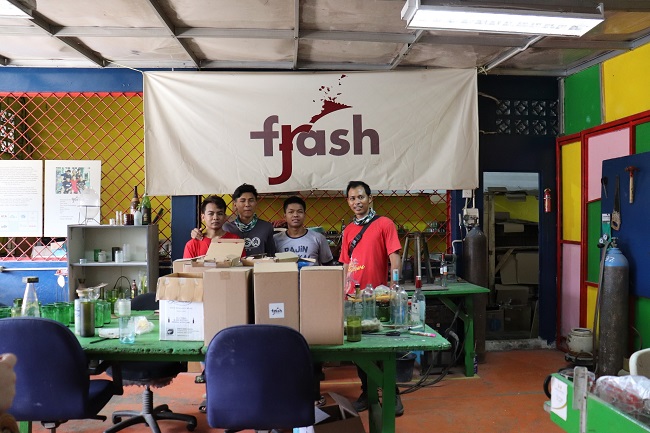
Waxyu (18), Dodi (17) and Dion (16) are interns with the Ffrash program in 2019, working under Yoki’s guidance to source, make and sell the products.
As of 2018, according to Indonesia’s Ministry of Social Affairs, almost 17,000 children were living on the streets. But these numbers have slowly been dropping over the past few decades. There were 46,800 street children in 2005, almost double the current numbers, ministry figures show.
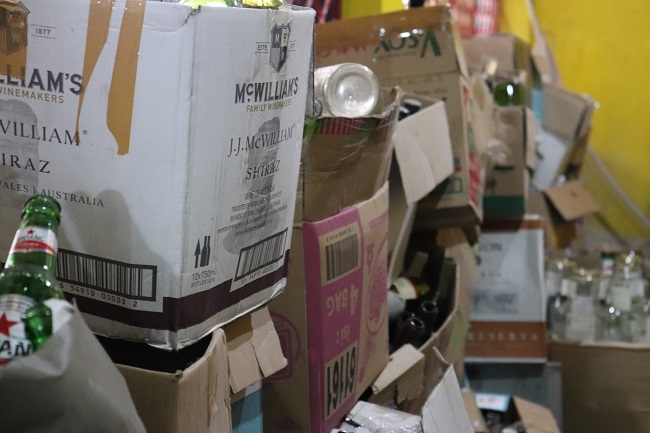
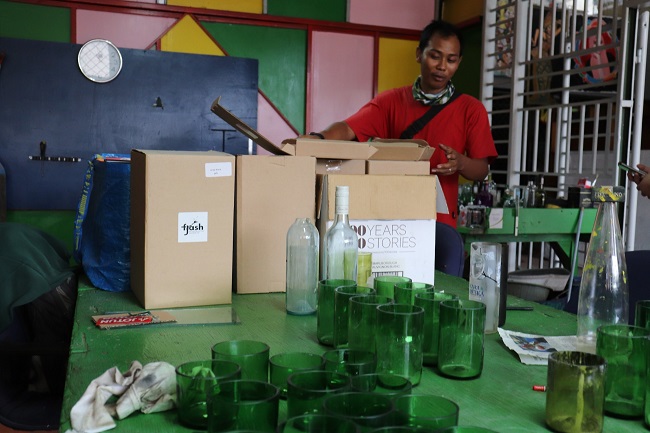
Yoki was a KDM student himself once, so he knows what it’s like to live on the streets and what, now as an educator, is needed to gain the trust of teenagers. ‘You need to be their friend,’ he said. ‘If I work as a manager to them, they won’t feel friendly.’

Waxyu said he wants to become an air-conditioner technician once his internship is complete.
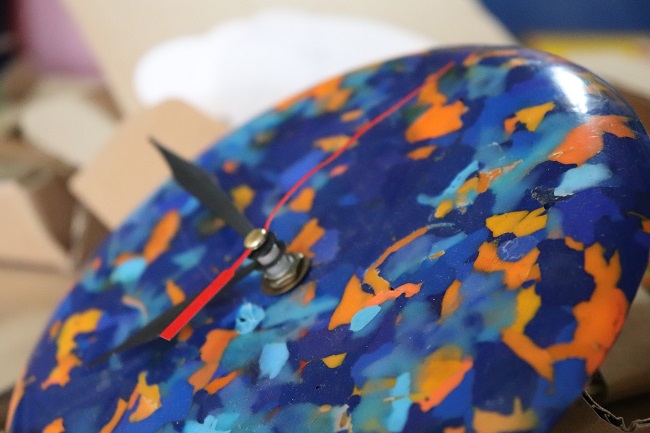
A popular upcycled product is the plastic clock, made from plastic bottle caps bought from the nearby Bantar Gebang landfill. ‘The garbage [there looks] like mountains, from far away. But when you go near, you can see it is trash,’ Yoki said.

Bantar Gebang has to accept thousands of tonnes of rubbish per day from the Jakarta area, said Deputy Minister for Human Resources, Science and Technology and Maritime Culture Ministry of Maritime Affairs and Investment, Safri Burhanuddin. The site is nearing capacity, although there are plans for projects to turn the waste into energy.
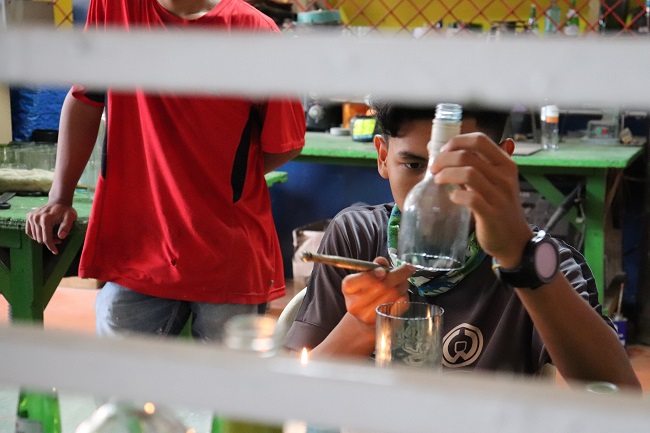
Three designers have developed products for Ffrash since its inception in 2012, but the children sketch up their own designs as well. Over the years, designs have improved so all of the trash that is gathered can be used in some way.
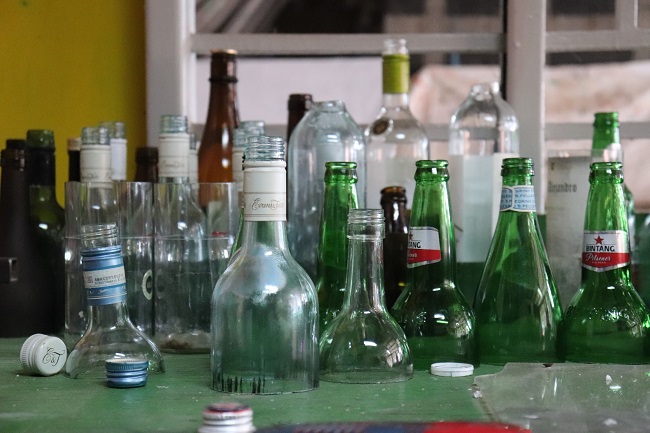
Cafes in Jakarta, expatriate neighbourhoods and embassies all contribute wine bottles. Blue bottles from Australia are a popular colour but difficult to find, Yoki told us.

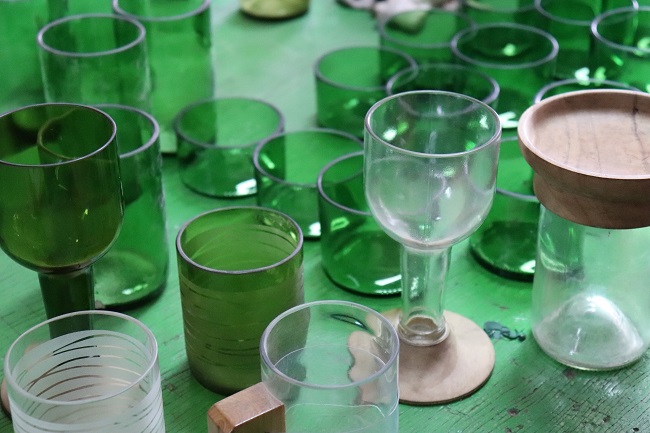
As Ffrash has expanded they have begun creating ‘collections’ for families. One example is the ‘father and son’ glasses -- one holds a beer and the other can be filled with milk, then topped with a wooden lid holding cake or biscuits.

While cups and glasses are a relatively simple products to create, the interns also construct more intricate designs, such as woven lampshades. ‘We use the plastic material and stitch it by hand,’ Yoki said. ‘It’s very difficult to make.’
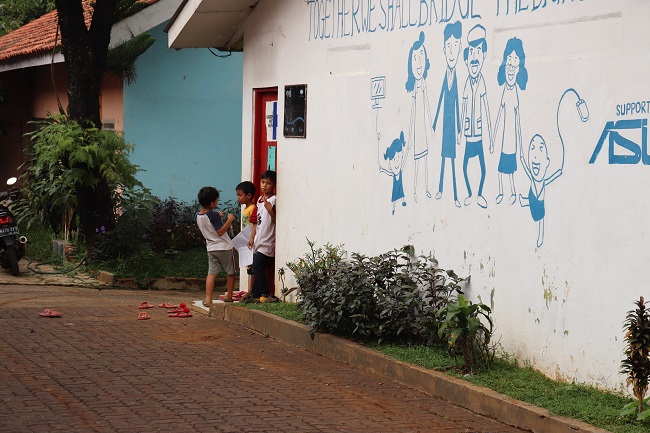
When asked what motivates him to work with street children, Yoki replied that as soon as they are part of KDM, they’re not street kids anymore. ‘I always say, “I am your brother and I am your friend. If you want anything, just ask, and if you have a problem, you can share with me."
‘I hope they can be good people, and that people can accept them as normal people,’ Yoki said, ‘because they have good character, skills, and because they’re ready for work.’
Aleisha McLaren (aleisha.m.mclaren@gmail.com) and Alana Riley (alanajriley@gmail.com) are journalism students from Queensland University of Technology and travelled to Indonesia with the support of the Australian Government’s New Colombo Plan Mobility Scheme.















